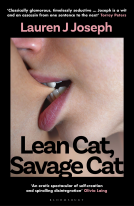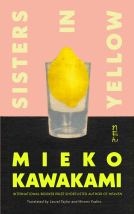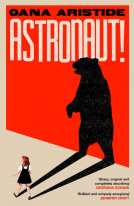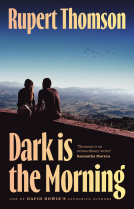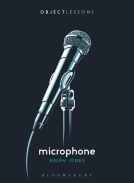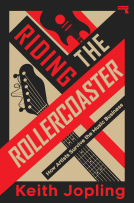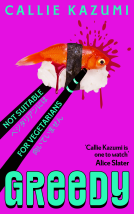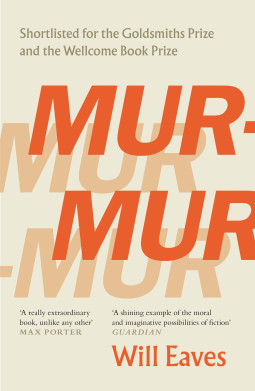
Murmur
by Will Eaves
This title was previously available on NetGalley and is now archived.
Send NetGalley books directly to your Kindle or Kindle app
1
To read on a Kindle or Kindle app, please add kindle@netgalley.com as an approved email address to receive files in your Amazon account. Click here for step-by-step instructions.
2
Also find your Kindle email address within your Amazon account, and enter it here.
Pub Date 4 Jul 2019 | Archive Date 30 May 2019
Talking about this book? Use #Murmur #NetGalley. More hashtag tips!
Description
Winner of the 2019 Wellcome Book Prize
Winner of the 2019 Republic of Consciousness Prize
Shortlisted for the 2018 Goldsmiths Prize
Shortlisted for the 2019 James Tait Black Prize
Longlisted for the 2019 Rathbones Folio Prize
Taking its cue from the arrest and legally enforced chemical castration of the mathematician Alan Turing, Murmur is the account of a man who responds to intolerable physical and mental stress with love, honour and a rigorous, unsentimental curiosity about the ways in which we perceive ourselves and the world.
Formally audacious, daring in its intellectual inquiry and unwaveringly humane, Will Eaves’s Murmur is a rare achievement.
Advance Praise
'A really extraordinary book, unlike any other'
MAX PORTER
'Endlessly rewarding, it is a shining example of the moral and imaginative possibilities of fiction'
Justine Jordan, Guardian, Books of the Year
'A novel forged from an immensely beautiful writing intelligence. Murmur is a fully achieved literary experiment, digging deep into all the dimensions of human consciousness, including state sanctioned savagery'
DEBORAH LEVY
'Remarkable . . . Murmur’s transgressive power lies at the level both of language and of structure . . . Will Eaves has achieved one of the pinnacles of novelistic endeavour: he has given deep thought to human experience, and in doing so brought to life the “self-conscious wonder” of thought itself'
Sam Byers, Times Literary Supplement
'[Murmur will] grip your mind in the very first pages, break your heart halfway through, and in the end, strangely, unexpectedly, restore your faith in human beings and their endless capacity for resilience'
ELIF SHAFAK, Wellcome Book Prize chair of judges
'An extraordinary exploration of dreams, consciousness, science and the future'
New Scientist, Books of the Year
'Murmur is a fully achieved literary experiment, digging deep into all the dimensions of human consciousness'
Goldsmiths Prize judges
'Will Eaves’s Murmur is a dive through consciousness, from the mundane to memory dreams, and beyond. The narrator – “Alec Pryor”/Alan Turing, the author – explores, from the inside, and with great scrupulousness, the mind’s unknowns . . . and the tragedy of Alan Turing. Knowing the story does not soften the ending'
Beverley Bie Brahic, Times Literary Supplement, Books of the Year
'The premise is startlingly ambitious: what if we could think our way into Alan Turing’s dreams? . . . Scrupulous, humane, sad and strange, [Murmur] is as bracingly intelligent as it is brave'
Guardian
'Exceptionally poised and elegant . . . Murmur is a poignant meditation on the irrepressible complexity of human nature and sexuality, and a powerful indictment of the cowardice and groupthink that sustain state-sanctioned barbarism'
Irish Times
'Will Eaves’s Murmur, a novel about Alan Turing so good and so strange it makes one want to shout'
Ian Sansom, Times Literary Supplement, Books of the Year
'Beautiful and hallucinatory . . . Murmur is most memorable when it lifts out of material history into higher planes of poetry. From Alec’s extreme isolation and suffering springs a vision of universal connectedness'
Wall Street Journal
'A marvellous and compelling book, on a subject of huge importance and scandal'
BERNARD O’DONOGHUE
'Murmur is a profound meditation on what machine consciousness might mean, the implications of AI, where it will all lead. It’s one of the big stories of our time, though no one else has treated it with such depth and originality'
PETER BLEGVAD, author of THE BOOK OF LEVIATHAN
'Masterful – compassionate, principled, and moving. It is deeply wise, with the aching loneliness of both human indignity and dignity, despair and courage'
ANNE MICHAELS, author of FUGITIVE PIECES
'Has achieved the holy grail of modern prose: conveying consciousness . . . An exquisitely crafted novel'
Review 31
'Ambitiously and brilliantly illustrates the relationships between fiction, consciousness, and artificial intelligence'
Australian Book Review
'Tender and funny, Murmur takes the tragic story of Turing’s life and punishment and ingeniously transforms it into something glittering, subversive, and even triumphant. Eaves has built a magnificently challenging memorial to one of the great twentieth-century martyrs'
PATRICK GALE, author of ROUGH MUSIC
'Gripping . . . A wildly inventive and moving exploration of the human mind'
Kirkus Reviews (starred review)
Available Editions
| EDITION | Paperback |
| ISBN | 9781786899378 |
| PRICE | £8.99 (GBP) |
Average rating from 12 members
Featured Reviews
 Moray L, Librarian
Moray L, Librarian
Will Eaves imagines the inner life of Alan Turing following his arrest for gross indecency and his enforced hormone therapy. This incredibly dense short novel is tender, humane, heart-breaking and fiercely intelligent. Its three sections describe the journal entries, dreams and correspondence of Alec Pryor (Eaves’ wonderful Alan Turing analogue). As the drugs destabilize his mind and transform his body Pryor’s theories of intelligence combine with his personal history to create vivid visions, sometimes bizarre, sometimes terrifying but always profoundly moving. Though each scene is saturated with emotion Pryor’s narrative is calm and matter-of-fact and this seeming disconnect powerfully translates the unique and remarkable man at the heart of the story as well as the terrible injustice done to him. The ideas are fittingly complex and I feel like a deeper knowledge of Turing’s theories will make a second reading even more rewarding. A very worthy winner of this year’s Wellcome Prize.
 Michael J, Educator
Michael J, Educator
There's a lot to admire in this novel which imagines the experiences, dreams and reflections of Alec Pryor (based on Alan Turing) as he is treated for homosexuality. It has a gripping, hallucinatory power which stops you in your tracks and is quite beautifully, and densely, written. It makes demands on the reader, which pay dividends. Much more about developing artificial consciousness and machine learning than code-breaking, its focus on 'echoes and rills of a different order, however, the inner murmur, and these I take to be true thinking, determinate and concealed' is fascinating. I am grateful for the opportunity to have read it.
 Sam W, Reviewer
Sam W, Reviewer
Murmur imagines the visions of a facsimile of Alan Turing called Alec Pryor. Turing was a brilliant man who was instrumental in winning the war against the Nazi's, and might have been so much more. He was cruelly hounded for being gay, and chemically castrated. It is while he is having these injections that Alec/Alan starts stepping outside of himself and having visions of the future and the past.
Will Eaves cannot expect a wide audience for this book as it is pretty impenetrable. On a second reading I would doubtless get more out of it, at the expense of tying my brain into knots. It is not an easy read, but it makes you feel great regret that Turing was driven to suicide in 1954. Four stars.
Murmur is a novel exploring the mind and human consciousness in the face of something terrible using literary style and scientific logic. The central figure Alec Pryor is based on Alan Turing, and the book charts his mental and physical reaction to arrest and state enforced chemical castration, particularly around his dreams which make up the centre of the book. Elements of journal are mixed with these dreams to create a horrific view of what such experiences may have been like, using a distinctive style and use of consciousness.
Calling Murmur 'experimental' in some ways fits both its stylistic work and its subject matter (considering the focus on maths, the mind, and humanity itself), though the reading experience is less disjointed than that may imply. Even the more stream of consciousness middle section comprised of dreams and letters follows certain logic, and the experience works as a way of depicting a mind under extreme stress. There is a lot of poetry in Eaves' prose too, with heartbreaking and concise descriptions of thoughts, love, and life.
For some people the style may put them off, but Murmur is a powerful fictional version of a terrible truth that uses this style to depict its meaning. Lurking underneath isn't only the awful actions of the law and the state towards 'Alec', but also questions around consciousness and machines as thought about by Alan Turing. Not many books focusing on dreams manage to pull it off, but this one does.
 Alan M, Bookseller
Alan M, Bookseller
‘Things seem to be sadly lost, put to bed, left on top of golden summits in the past, trailing away until we see what the lines of event and memory have traced: a plane. A loop that encloses all loss, has no beginning and no end.’
Lauded by critics, winner of the Wellcome Prize and Republic of Consciousness Prize, and – in my reading of its shortlist – nominated for the James Tait Black Prize. This book comes with heavy expectations, and it does not disappoint. This is a stunning, complex and moving study of a man caught between worlds: the physical and the intellectual, a secret war hero and a social outcast, male and female, desire and repression.
Based on the events in the life of mathematician Alan Turing, Eaves’ central character is Alec Pryor, a man who with his work at Bletchley helped shorten the war, but who was later arrested for gross indecency for a relationship with another man and who underwent chemical castration. Even just to write that sentence is horrible, and even with the posthumous pardon that has now been granted for Turing it is still an injustice of the highest order. Befitting the man, this is a complex book – be warned. It is oblique, full of images and dreams and references to all sorts of weird and wonderful scientific and metaphorical ephemera. We open with extracts from Pryor’s journal as he is undergoing his ‘treatment’:
‘I used to be so capable, but I am changing; I’ve already changed, and find myself drawn to the episodic and semantic mode – the ancient tool, of speaking thought.’
Thoughts – the ‘murmurs’ of the title – weave in and out, elusive, symbolic and difficult to pin down.
Part two (entitled Letters and Dreams) takes the reader on a wild journey. At first it appears simple: a series of letters between Alec and his friend June (a former co-worker at Bletchley to whom he had been engaged), in which they discuss Alec’s dreams which get more and more complex. I say ‘appears’, because there is a twist revealed in the final part of the book. And the dreams themselves are, boy oh boy, complicated to say the least. There is an overarching structure to them involving the Snow White fairy tale; mirrors, dwarves, the Evil Queen and, of course, the poisoned apple. The central theme of identity is crucial, as Pryor finds himself between worlds, between identities – past/present, male/not-male, hero/villain, human/machine. Mirrors both reflect and change reality, and by looking into them we see not simply an image but a second self, another version of ourselves. By extension, the process of surrendering thought, of replicating the image, means that ‘if you can be repeated, you can be replaced’ – i.e., the rise of the machine. And this adds a whole other level to the complexity of the novel as Turing muses on AI and the possibilities of rational, thinking machines.
Part three returns us to Pryor’s journal, and we are introduced to the Council of the Machines. Now finished with his chemical treatment, but continuing with his psychoanalysis, Pryor’s thoughts turn even more on the past, on identity and memory. We start to question where dreams and imagination end and reality begins; a thinking machine will store data, forgetting nothing, but an educable machine would sift and discard what it does not need. Pryor, as a human, muses on his memory and the fragmentation of his thoughts: ‘What I lack, and this is the great change to have been worked in me, is the capacity to organise those fragments properly.’
Please do not be put off by the depth and complexity of the novel; Eaves has written an profoundly moving portrait of a man torn by his inner demons, the loss of his one true love Christopher as a young man, and suffering the horrors of chemical castration. Even though the reader knows it’s coming the end of Part Two is just a punch to the gut, and the sense of injustice, a life lost, is powerful. The dreams and fragments are intended to leave the reader with a sense of something not quite explained, of a deeper meaning. And that, for me, is the triumph of the book. It deserves to be savoured, not just for the ideas but also for Will Eaves’ sublimely beautiful prose. And this is exactly the kind of book that needs to be read again, for it will reveal so much more. Deservedly, it has been praised and rewarded. It is, simply, a stunning and moving testament to an extraordinary human being. 5 stars all round.
Readers who liked this book also liked:
Keith Jopling
Arts & Photography, Biographies & Memoirs, Business, Leadership, Finance

